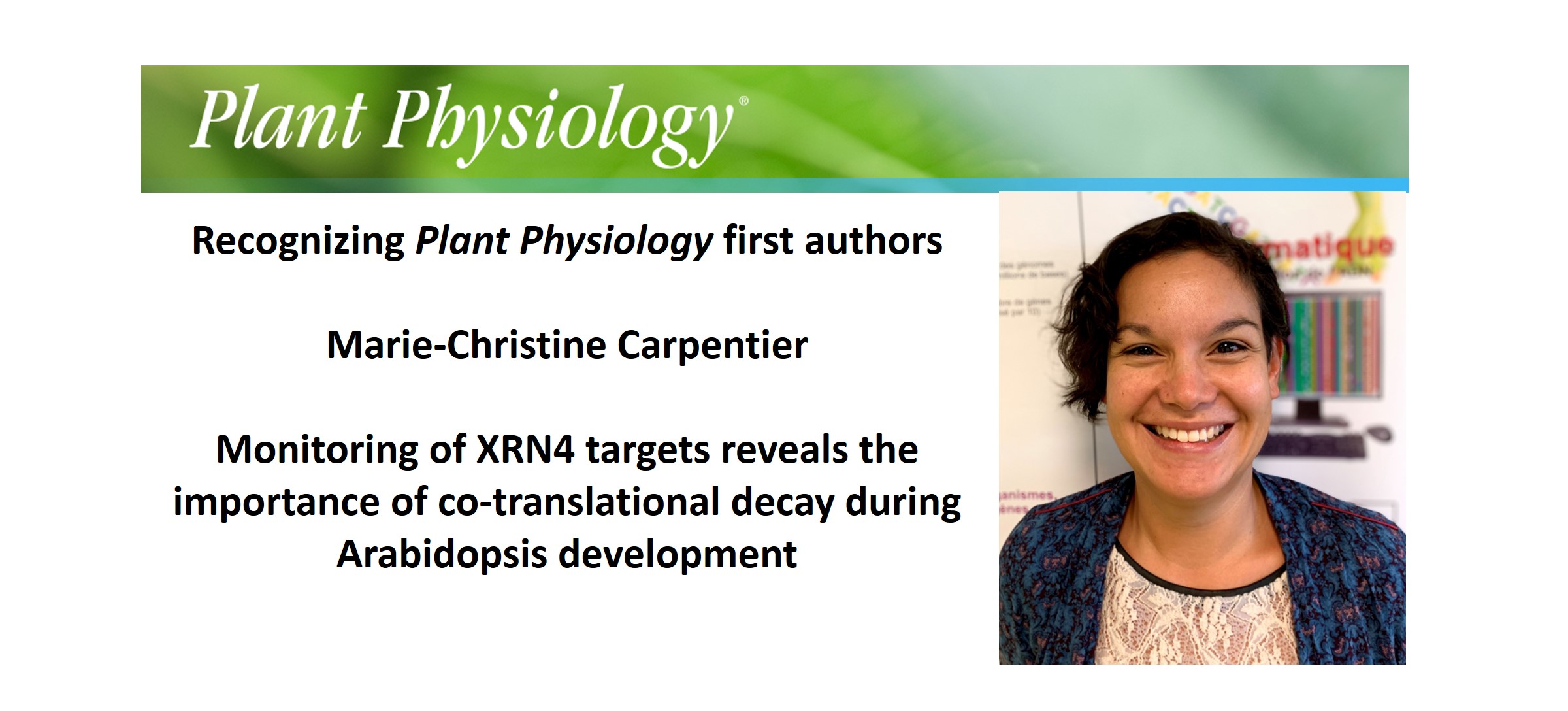Recognizing Plant Physiology authors: Marie-Christine Carpentier
 Marie-Christine Carpentier, first author of Monitoring of XRN4 targets reveals the importance of co-translational decay during Arabidopsis development
Marie-Christine Carpentier, first author of Monitoring of XRN4 targets reveals the importance of co-translational decay during Arabidopsis development
Current Position: Bioinformatician at Plant Genome and Development Laboratory, University of Perpignan, France
Education: Master’s degree in computational biology at University Paris VII Diderot
Non-scientific Interests: epicurean, hiking, music, chill-out, zero-waste addict
Brief bio: I started to learn biology and microbiology at Paris VII Diderot University (Paris, France). Over time, because I always liked informatics and computers, I decided to develop skills in computational biology, especially in genomics with my master’s degree in computational biology. Seven years ago, I was recruited in the Plant Genome and Development Laboratory (Perpignan, France) as an bioinformatic engineer. Half of my working time is devoted to managing a bioinformatic facility. I am in charge of NGS (Next Generation Sequencing) data analysis for all the unit, particularly RNASeq data. I developed different major bioinformatic pipelines to find answer of researcher’s issues in high-throughput big data. Thanks to my knowledge in biology, I am at the interface between biology and informatics and it helps to communicate with biologists, even if it’s sometimes difficult.
In this frame I collaborated with Dr. Rémy Merret to analyze “degradome” high-throughput data and to understand the interplay between mRNA decay and mRNA translation across the development in Arabidopsis thaliana. Thanks to this collaboration, I learned a lot about co-translational decay and improve my bioinformatic skills with the challenge to analyze new kind of NGS data.
The other part of my working time is devoted to evolve in the genomic team of the laboratory. Five years ago, I started a PhD thesis on plants genome dynamics. I am interested in the contribution of transposable elements in genome structural variation in 3000 rice varieties.
Defending my PhD thesis soon (hopefully), I would like to continue my work at the head of the bioinformatic platform as interactions with researchers working on different topics is very interesting and motivating, and in my team, I would like to study the functional impact of transposable elements in plant genomes.



